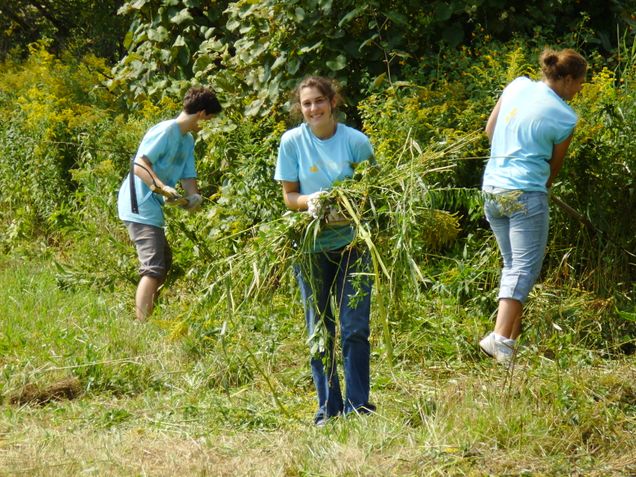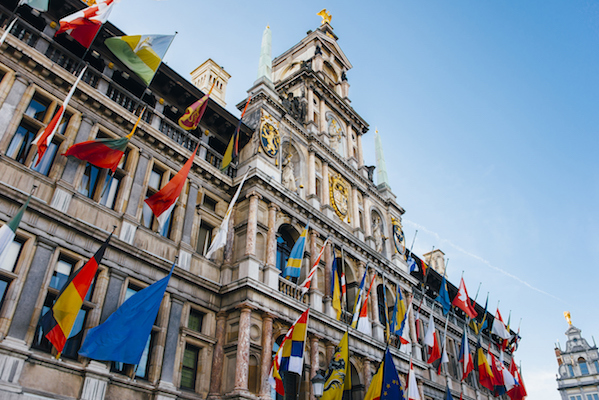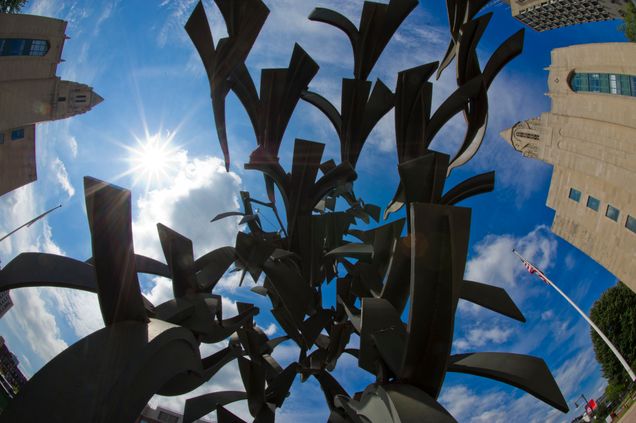Diversity, Civic Engagement, and Global Citizenship
In our globally connected world made up of complex, diverse communities, BU graduates will need to find their places i
BU’s founders envisioned an institution that fostered opportunity for people of every race, class, religion, and gender. From early on, BU has recruited students from around the globe and sent its alumni to every corner of the earth. Building on these commitments to inclusion, the Hub prepares students to engage with peoples and cultures abroad and within one’s local community, and with struggles for social justice. These learning outcomes take advantage of BU’s broad range of language programs and study abroad options, and abundant coursework in literature and the arts, cultures, societies, public issues, and development challenges of societies worldwide. They foster engagement with the city of Boston as well as our own diverse campus, which both offer many opportunities to learn from our neighbors and to appreciate and value complex social environments.

The Individual in Community
The ability to accept individual responsibility toward multiple communities, and to work as engaged members of diverse communities, is essential to all aspects of life in the 21st century.
View Courses
View Learning Outcomes for The Individual in Community
Over a lifetime, people move in and out of multiple communities that range from the family, to neighborhoods and cities, to professional and other organizations (which might be international), to larger units such as the nation. They may be defined by, among other things, race, class, ethnicity, nationality, gender, personal relationships, time, location, interests, and beliefs.
Courses in this area will have the first learning outcome and will also have the second or third learning outcomes.
Learning Outcomes
- Students will reflect critically on their engagement and relations with different communities—campuswide, citywide, national and/or international—and will recognize and analyze the issues relevant to those communities (or to different individuals in those communities).
- Students will consider at least one of the dimensions of experience that inform their own worldviews and beliefs as well as those of other individuals and societies. Such considerations may include (but are not limited to) race, class, gender expression, sexuality, disability, neurodiversity, age, language, religion, politics, or cultural history.
- Students will demonstrate depth of understanding of the historical and systemic bases of racial bias and inequities in the world today, including in the United States. This may include awareness of systems and/or cultural structures of racial bias and inequity (such as in education, employment, health, disability, housing, data science, artificial intelligence (AI), machine learning, and the law), the societal consequences of such inequities, and antiracist or other activism aimed at creating a more just and equitable society.

Global Citizenship and Intercultural Literacy
Our world is interlinked socially, economically, culturally, and politically.
View Courses
View Learning Outcomes for Global Citizenship and Intercultural Literacy
An ability to orient ourselves when outside our cultural comfort zones (abroad, when speaking a different language, in an unfamiliar neighborhood of Boston, for example) and to work with sensitivity with people from different backgrounds is necessary to success in the workplace and to living a productive, meaningful life.
Courses in this area will have at least one of the first two following learning outcomes, and may also have the third learning outcome.
Learning Outcomes
- Students will demonstrate, through comparative reflection or analysis, an understanding of global diversity as expressed in at least two different languages, cultures, religions, political systems, or societies.
- Students will demonstrate detailed understanding of at least two cultural contexts through language or culture study at BU, participation in a language or culture living-learning community at BU, or study abroad. This will involve reflection and cultivating diverse approaches to linguistic, cultural, religious, political, social, and/or historic factors that have helped produce these cultural contexts.
- Students will demonstrate detailed understanding of the ways in which historical and systemic bases of social and racial inequities occur in the world today. This may include awareness of systems of racial inequity (such as in education, employment, health, housing, data science, artificial intelligence (AI), machine learning, and the law), the social consequences of such inequities, and antiracist or other activism aimed at creating a more just and equitable society.

Ethical Reasoning
What should we care about? How should we behave in our personal, civic, and professional lives? Do laws have a moral basis?
View Courses
View Learning Outcomes for Ethical Reasoning
Learning to grapple competently with such fundamental ethical questions is a central component of citizenship and is critical to helping us understand ourselves not just as individuals, but also as parts of communities and custodians of the Earth. Ethical reasoning is part of Boston University’s distinguishing tradition of social justice.
Courses in this area will have two of the three following learning outcomes.
Learning Outcomes
- Students will be able to identify, grapple with, and make a judgment about the ethical questions at stake in at least one major public debate, and engage in a thoughtful discussion about it with those who hold views different from their own.
- Students will demonstrate the skills and vocabulary needed to reflect on their ethical responsibilities to multiple communities: e.g., communities of which students are a part, communities identified as “other,” multispecies communities of the Earth, and humankind, broadly understood.
- Students will demonstrate knowledge of ethical issues around racial and/or other socially based forms of injustice (e.g., based in gender, class, sexuality, etc.) and the skills to ethically assess and make informed, evaluative judgments about those issues.



